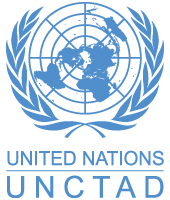There is an increased pressure for UN statistical programmes, both from inside and outside the UN system, to provide more up-to-date information for monitoring sustainable development and providing timely evidence for policy makers. Technological innovations, new data sources and the emergence of big data are delivering additional opportunities to follow economic and social developments with reduced time lags, in some cases even in real-time.
Many UN statistical programmes have responded by releasing estimates, forecasts and figures based on available information. Included in these initiatives are nowcasts, which can be defined as real-time evaluations of variables based on a series of relevant, timely and higher-frequency indicators.
The publication of such timely figures has generally received a positive response, but many questions remain concerning methodologies, quality and validity of data sources, combination of hard and soft indicators, impact of revisions in the underlying data, dissemination strategies, potential confusion in some data users, and relevance to some areas of sustainable development. In addition, agencies have explored this area of work separately until now, resulting in a lack of harmonization and a missed opportunity to share experiences.
At the meeting of the Committee of the Chief Statisticians of the United Nations System (CCS-UN) that took place on 11 September 2019 in Copenhagen, the chief statisticians agreed to organize a “training session for agencies practitioners who want to adopt this technique [nowcasting]”. This session will take the form a technical workshop, jointly organised by UNCTAD and UNIDO, to discuss the current practices of CCS-UN members in areas related to nowcasting, identify gaps where additional methodological work is needed, and share successful communication strategies for these estimates.
Most current nowcasting efforts have focused on economic indicators, given the availability of timely data in many sectors of economic activity and a forecasting tradition in this domain. One session of the workshop will be dedicated to examples from this area. Other areas, including social, humanitarian and environmental domains, present unique challenges given their nature, the limited availability of relevant indicators, their geographical coverage, and other issues. At the same time, these are also the domains where many new developments in nowcasting are taking place. Another session of the workshop will cover these topics.
The workshop will take the form of an informal discussion where participants are invited to present their work, even if only at a work-in-progress stage and give and receive feedback. The focus will be on methodological issues. In addition to sharing successful experiences, another important objective of the workshop will be to discuss establishing an informal working group on nowcasting to share ideas, review and provide methodological assistance and build collaborations in this area.





